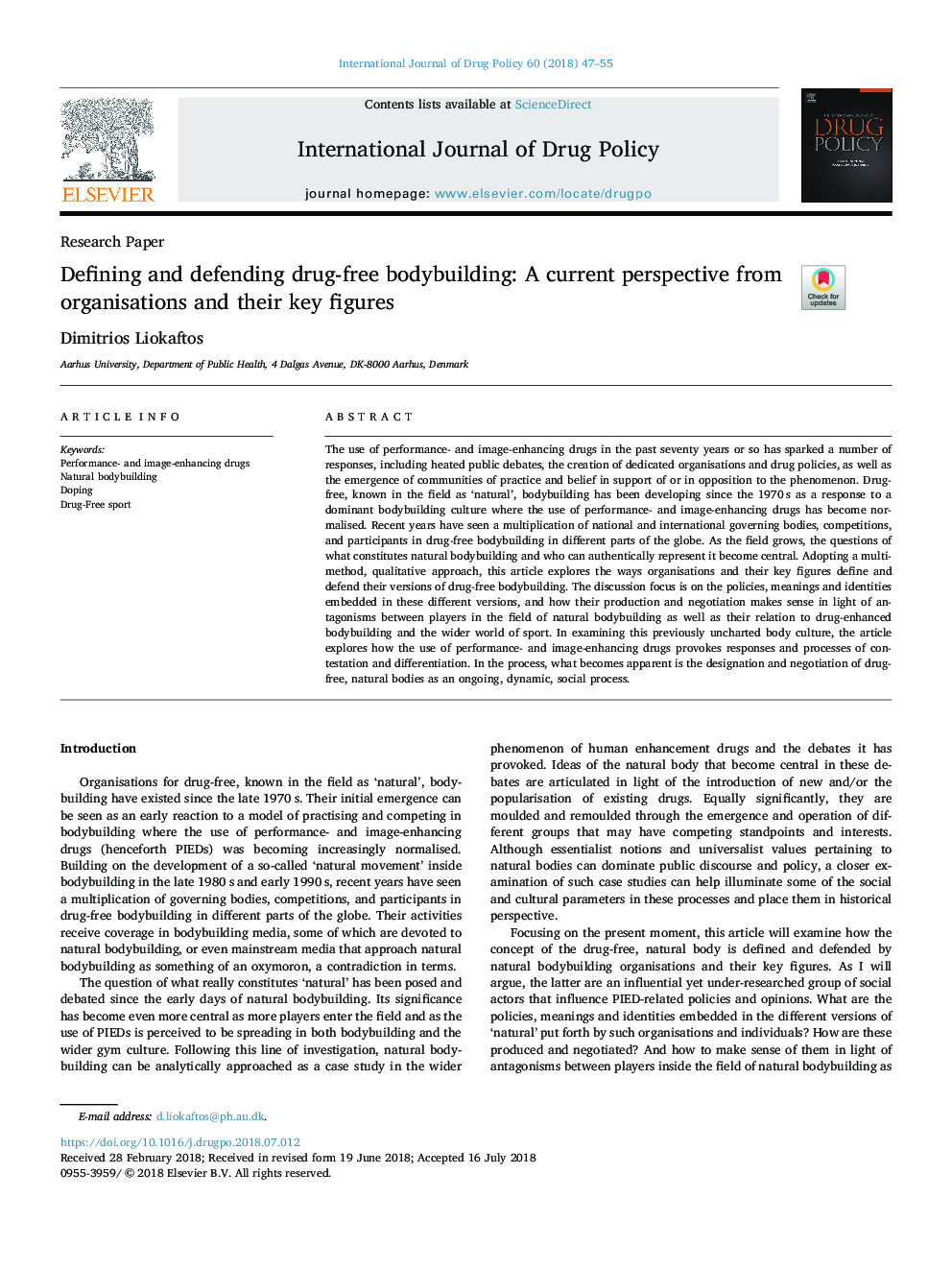| Article ID | Journal | Published Year | Pages | File Type |
|---|---|---|---|---|
| 7511183 | International Journal of Drug Policy | 2018 | 9 Pages |
Abstract
The use of performance- and image-enhancing drugs in the past seventy years or so has sparked a number of responses, including heated public debates, the creation of dedicated organisations and drug policies, as well as the emergence of communities of practice and belief in support of or in opposition to the phenomenon. Drug-free, known in the field as 'natural', bodybuilding has been developing since the 1970âs as a response to a dominant bodybuilding culture where the use of performance- and image-enhancing drugs has become normalised. Recent years have seen a multiplication of national and international governing bodies, competitions, and participants in drug-free bodybuilding in different parts of the globe. As the field grows, the questions of what constitutes natural bodybuilding and who can authentically represent it become central. Adopting a multi-method, qualitative approach, this article explores the ways organisations and their key figures define and defend their versions of drug-free bodybuilding. The discussion focus is on the policies, meanings and identities embedded in these different versions, and how their production and negotiation makes sense in light of antagonisms between players in the field of natural bodybuilding as well as their relation to drug-enhanced bodybuilding and the wider world of sport. In examining this previously uncharted body culture, the article explores how the use of performance- and image-enhancing drugs provokes responses and processes of contestation and differentiation. In the process, what becomes apparent is the designation and negotiation of drug-free, natural bodies as an ongoing, dynamic, social process.
Keywords
Related Topics
Health Sciences
Medicine and Dentistry
Psychiatry and Mental Health
Authors
Dimitrios Liokaftos,
